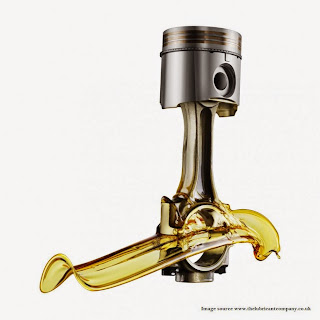Oral Care Market Opportunities and Challenges - Global Forecast to 2026
The increase in the prevalence of dental caries, periodontal diseases, and other dental diseases; growing awareness about oral hygiene, rising dental healthcare expenditure; and an increasing number of small/private clinics with dental dispensaries are some of the factors contributing to the growth of this market. However, the competitive pricing pressure faced by prominent players is hampering the growth of the Oral Care Market.
According
to the market research report the global oral care market size is
projected to reach 54.9 billion by 2026, at a CAGR of 3.1%.
Download PDF Brochure: https://www.marketsandmarkets.com/pdfdownloadNew.asp?id=80546246
Based on product, the market is categorized into toothpaste, toothbrushes accessories, mouthwashes/rinses, denture products, dental accessories/ancillaries, and dental prosthesis cleaning solutions. In 2019, the toothpaste segment was expected to account for the largest share of the Oral Care Market. The large share of this segment can primarily be attributed to the enormous adoption of toothpaste for maintaining oral hygiene, the treatment of dental caries, and its use in post-surgical procedures.
By distribution channel, the Oral
Hygiene Market is segmented into consumer stores, retail pharmacies,
dental dispensaries, and online distribution. Online distribution is
expected to grow at the fastest CAGR in the forecast period in this
segment. This high growth can be attributed to the increase in the
number of e-commerce platforms focused on oral care/oral hygiene
products, better convenience and availability of a variety of products
through this channel along with proper discounts.
Challenge: Adverse effects of teeth whitening products
Although
a growing trend in the oral care market, teeth whitening also has the
potential to cause certain adverse effects in consumers. Repeated use of
whitening products such as teeth whitening pens can cause irreversible
destruction of the tooth enamel. This could, in turn, cause teeth
sensitivity due to repeated erosion of the protective enamel layer.
Also, the teeth whitening agent is likely to contact the gum line during
use, which can cause localized irritation and pain. Whitening agents
can also cause uneven teeth whitening, especially if a few or several of
the teeth in the dentition are artificial.
Opportunity: Rising trend of online purchasing and e-commerce
There
has been a marked shift in distribution channel trends for oral care
products in recent years. Online retailers are gradually being preferred
over traditional distributors, retailers, and pharmacies. These online
retailers provide a wide range of oral care products at attractive
prices. The growing trend of online purchasing is supported by the
increasing number of Internet users, which has reached 4.8 billion (as
of July 2021) globally (Source: Kepios). According to Miniwatts
Marketing Group, as of June 2019, oral care products accounted for 13%
of the personal care products ordered by online portals. Moreover,
purchasing oral care products through e-commerce portals offers several
advantages, such as the availability of multi-brand oral care products
at relatively lower prices, ease of purchasing, and free shipping.
The
COVID-19 scenario has encouraged the online distribution of oral care
products considerably. Due to the lockdown and quarantine measures
undertaken during the pandemic scenario, consumers have increasingly
shifted to e-commerce and online channels to purchase oral care
products, thus further resulting in the growth of the online mode of
distribution in the past year.
Some of the key players competing
in the Oral Hygiene Market are Colgate-Palmolive Company (US), The
Procter Gamble Company (US), GlaxoSmithKline PLC (UK), Unilever PLC
(UK), 3M Company (US), Lion Corporation (Japan), Church Dwight Co., Inc.
(US), Koninklijke Philips N.V. (Netherlands), Johnson Johnson (US), GC
Corporation (Japan), Sunstar Suisse S.A. (Switzerland), Perrigo Company
plc (Ireland), Dabur India Ltd. (India), Orkla (Norway), Dentaid, Ltd
(Spain), Henkel AG Co. KGaA (Germany), LG Household and Health Care Ltd
(South Korea), The Himalaya Drug Company (India), Young Dental (US), and
Ultradent Products Inc (US).
Request For Free Sample Pages: https://www.marketsandmarkets.com/requestsampleNew.asp?id=80546246
In 2019, the Asia Pacific was estimated to account for the largest share of the oral care market,
followed by Europe. The high growth rate of this region can mainly be
attributed to the increase in the number of the geriatric population
associated with edentulism, increasing healthcare expenditure (coupled
with the rising disposable income), growing prevalence of dental caries
and other periodontal diseases in children and adults, rising awareness
about oral healthcare, and willingness to spend more on dental care.
Contact:
Mr. Aashish Mehra
MarketsandMarkets™ INC.
630 Dundee Road
Suite 430
Northbrook, IL 60062
USA: 1-888-600-6441
sales@marketsandmarkets.com
Press Release: https://www.globenewswire.com/news-release/2022/08/23/2503197/0/en/Oral-Care-Market-worth-54-9-billion-by-2026-Exclusive-Report-by-MarketsandMarkets.html

Comments
Post a Comment